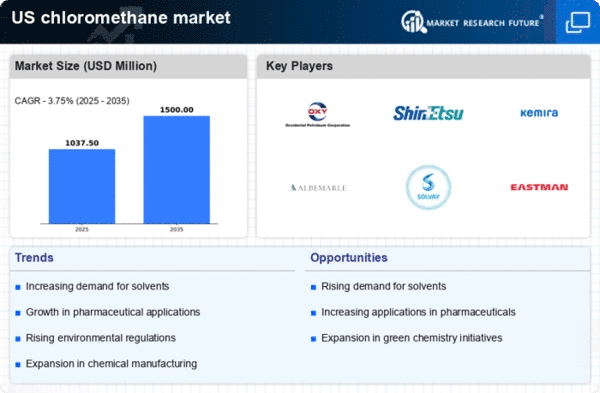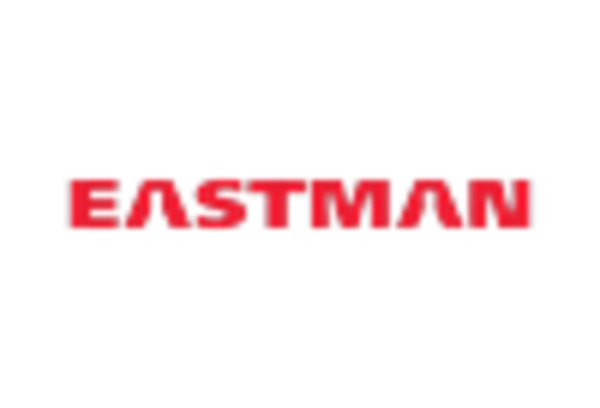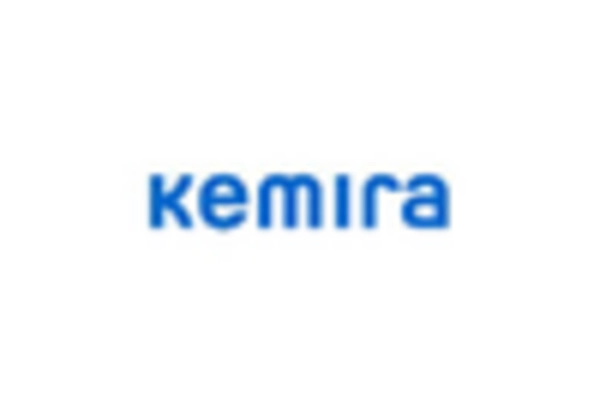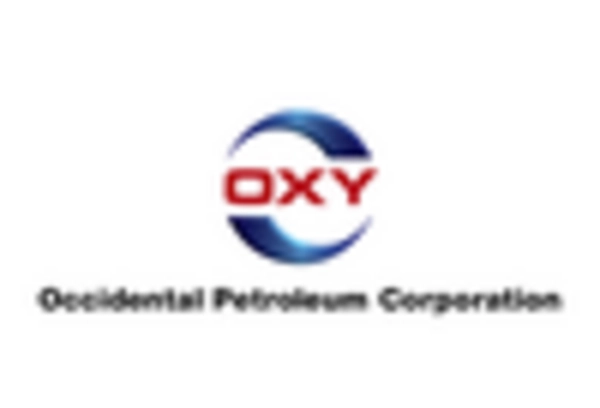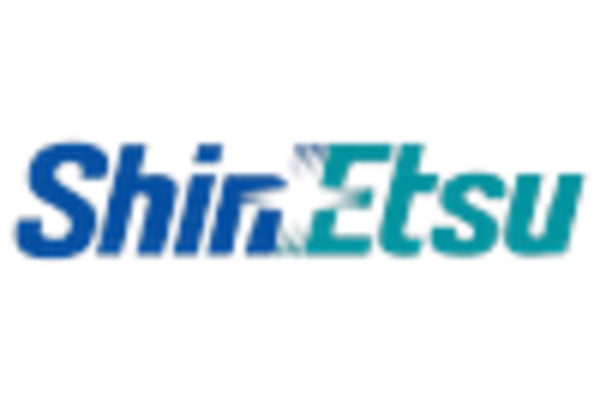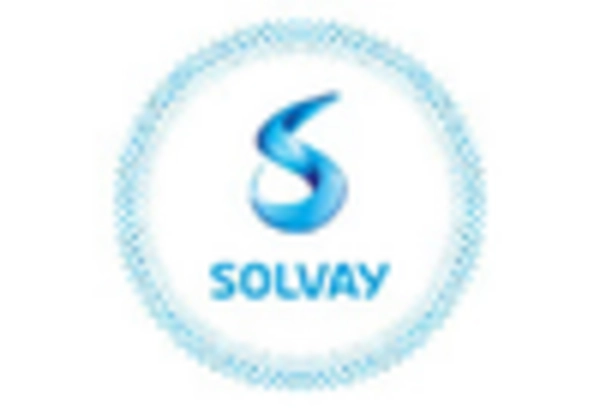The chloromethane market exhibits a competitive landscape characterized by a blend of established players and emerging innovators. Key growth drivers include increasing demand for chloromethane in various applications such as solvents, refrigerants, and chemical intermediates. Major companies like Occidental Petroleum (US), Albemarle Corporation (US), and Eastman Chemical Company (US) are strategically positioned to leverage their extensive production capabilities and technological advancements. Occidental Petroleum (US) focuses on enhancing its operational efficiency through digital transformation initiatives, while Albemarle Corporation (US) emphasizes sustainability in its production processes. Eastman Chemical Company (US) is actively pursuing partnerships to expand its product offerings, thereby shaping a competitive environment that prioritizes innovation and sustainability.In terms of business tactics, companies are increasingly localizing manufacturing to reduce transportation costs and enhance supply chain resilience. The market structure appears moderately fragmented, with a few dominant players exerting considerable influence. This fragmentation allows for niche players to thrive, yet the collective strategies of key companies drive significant market dynamics, fostering a competitive atmosphere that encourages continuous improvement and adaptation.
In October Occidental Petroleum (US) announced a strategic partnership with a leading technology firm to implement AI-driven solutions in its chloromethane production processes. This move is anticipated to enhance operational efficiency and reduce production costs, positioning the company favorably in a competitive market. The integration of AI technologies may also lead to improved product quality and consistency, which are critical factors in maintaining customer satisfaction.
In September Albemarle Corporation (US) unveiled its new sustainability initiative aimed at reducing greenhouse gas emissions by 30% by 2030. This initiative underscores the company's commitment to environmental stewardship and aligns with the growing demand for sustainable chemical solutions. By prioritizing sustainability, Albemarle Corporation (US) not only enhances its brand reputation but also meets the evolving expectations of environmentally conscious consumers and regulatory bodies.
In August Eastman Chemical Company (US) expanded its chloromethane production capacity by 15% at its facility in Texas. This expansion is strategically significant as it enables Eastman to meet the rising demand for chloromethane in the North American market. The increased capacity is expected to bolster the company's market share and enhance its competitive positioning against other major players.
As of November current trends in the chloromethane market indicate a strong emphasis on digitalization, sustainability, and technological integration. Strategic alliances are increasingly shaping the competitive landscape, allowing companies to pool resources and expertise to drive innovation. The shift from price-based competition to a focus on technological advancements and supply chain reliability is evident. Companies that prioritize innovation and sustainability are likely to differentiate themselves in a market that is evolving rapidly, suggesting a future where competitive advantage hinges on the ability to adapt and innovate.


